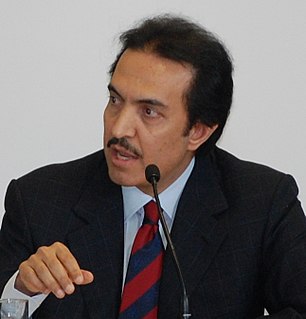Top 12 Quotes & Sayings by Nayef Al-Rodhan
Explore popular quotes and sayings by a scientist Nayef Al-Rodhan.
Last updated on April 22, 2025.
Cognitive neuroscience, and social theorists from Weber to Bourdieu, have recognized that humans act, most of the time, habitually, not reflectively. Both at intrastate and inter-states levels, habits play critical roles in mitigating uncertainty, providing a sense of order, and entrench patterns of cooperation or enmity.
The history of Israel-Palestine conflict cannot be understood without its underlying emotional meanders. The emotional frameworks of the loss of Palestine for the Arab-Islamic world touched deep scars that go back to the Crusades, symbolizing a proof of Arab-Islamic decay, political impotence, and perceived (British/French) betrayal and antagonism.





















